
𝚂𝙴𝙸𝚉𝙸𝙽𝙶 𝚃𝙷𝙴 𝙼𝙴𝙰𝙽𝚂 𝙾𝙵 𝙶𝙴𝙽𝙴𝚁𝙰𝚃𝙸𝙾𝙽
Defining and implementing abstractions is more practice than elaboration. Interfaces built through formal languages are shaped by a shared praxis whose consensual lessons are established as standards. The use of such normalised means to create art pieces is hence an intuitive deviation: tools fashioned as means to an end are often used for purposes that appear to be the exact opposite of their raison d’être. Recent technosocial developments have enabled the tentative burgeoning of an economy nurturing these deviant applications. A new wave of the so-called “generative art” milieu is attempting to mobilise both factors of production, capital and labour, to augment the manufacturing of such algorithms. While the nature of each factor is apparently unremarkable, their intersection in this space does yield an idiomatic result. Humans and tools which are engaged in this practice, because they are incentivized to systematically share the outputs of their research, participate in the transformation of both factors and, as such, in their own. The generative art milieu is building an attempt to seize the means of generation.
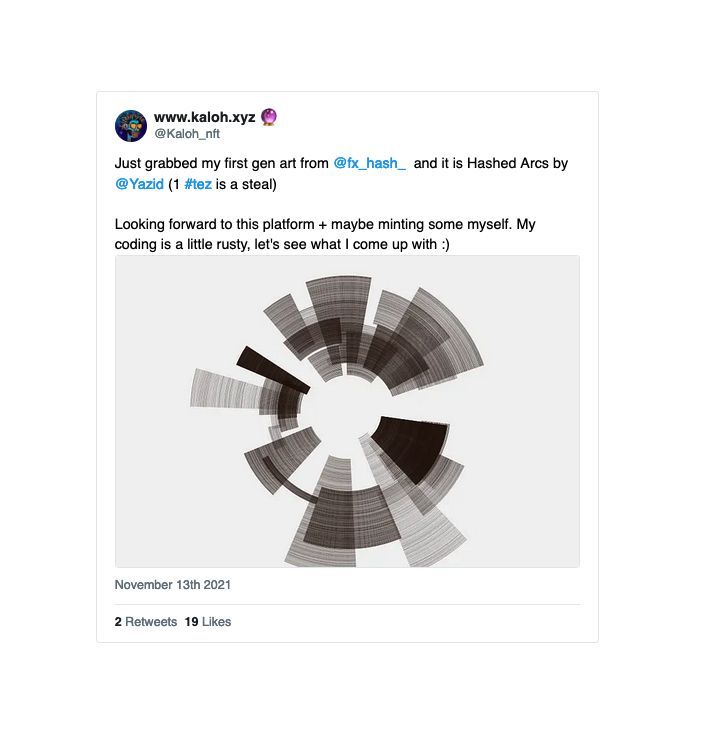
Let's Take a Step Back
My view on where we are now and where we are going with the gen art movement...
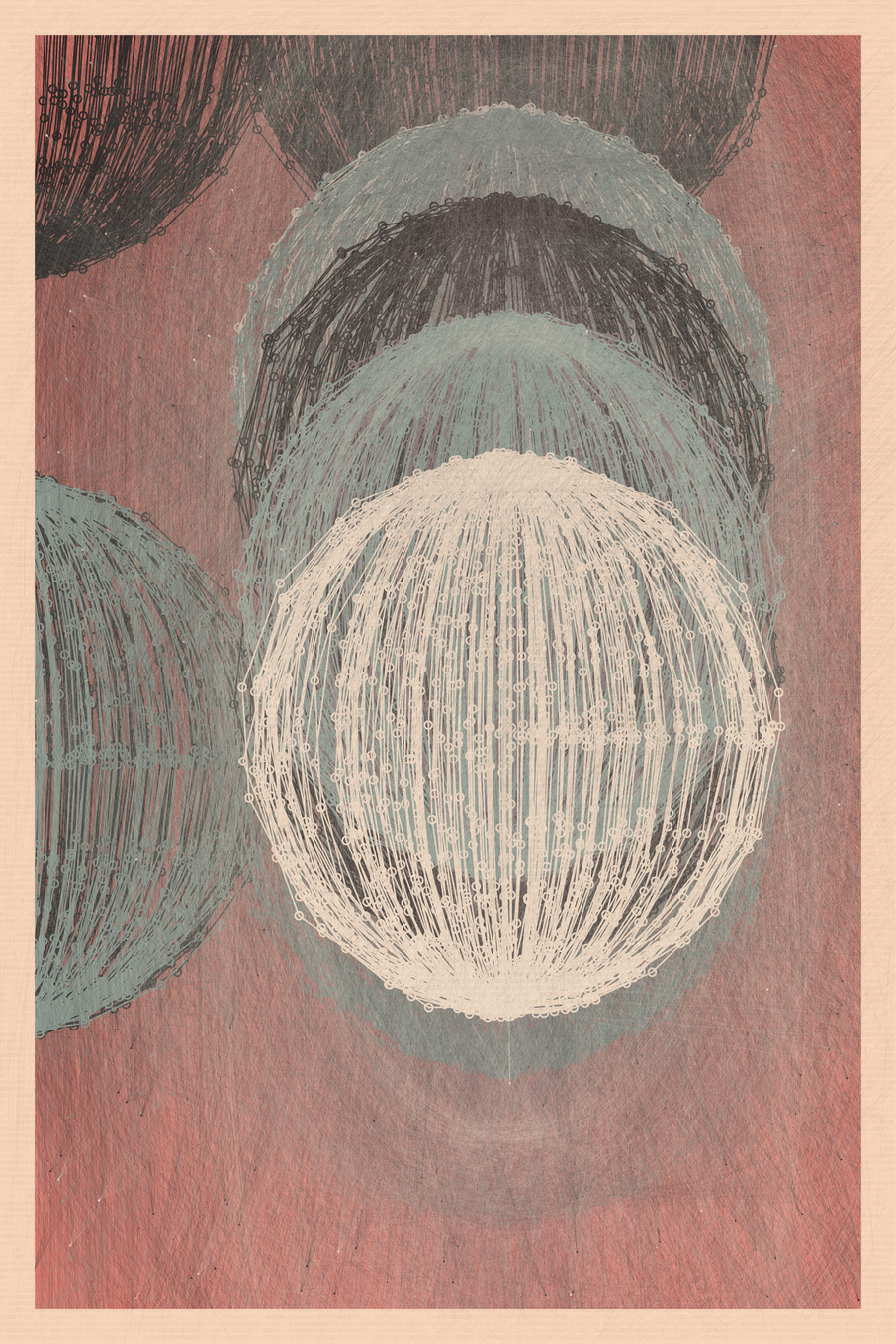
Breeding Grounds
Breeding Grounds is inspired by the assumption that both the brain and the cosmic web are very similar in structural design. This can also be found in many other subsystems of the universe, such as Social Networks or molecular clouds. Thereby either biological or physical factors play a role and influence these systems in a certain way which leads to these similarities. Breeding Grounds should not be another fractal algorithm, but more an abstract idea of the topic. Especially since a distinction must be made between fractal systems (self-similar) and those described above (not self-similar). Fractal systems are an important component of the universe, therefore I didn't want to leave them unmentioned at least in a lyrical way.
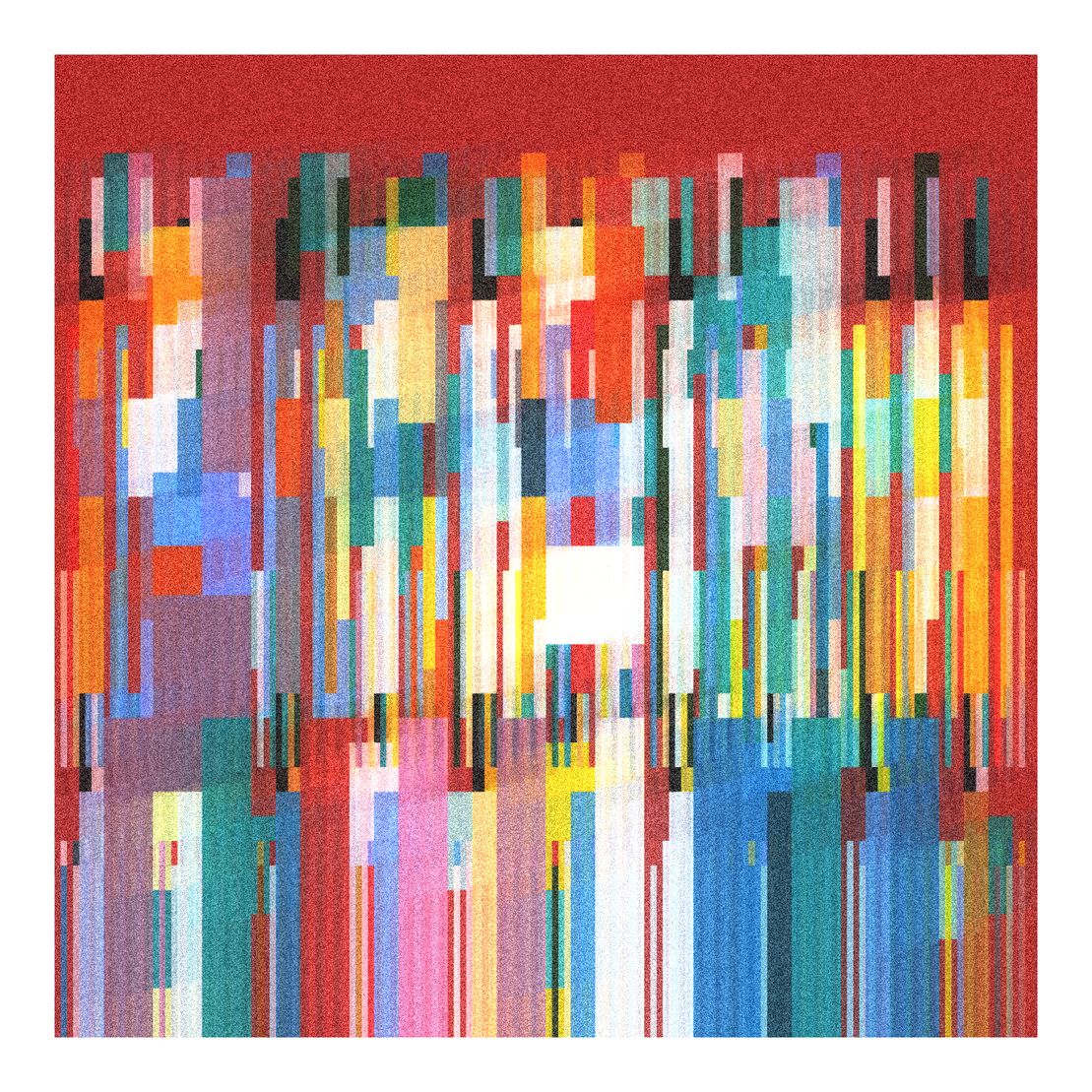
Ode to Contrapuntos, or Remembrance
Some artworks are still mysteries to me, and Contrapuntos is one of them. It was this piece that made me fall in love with generative art. It was this work that gave me this sparking moment when I came to understand not just intellectually, but at my very soul, how an artist's imagination, algorithms, and randomness play together in generative art to create beauty and meanings. And yet it turned out to be the most challenging piece to describe in writing. As I looked at it, thoughts and words vanished and a sense of joyful silence filled my mind. As much as I wanted to share it, I struggled to find the right words.
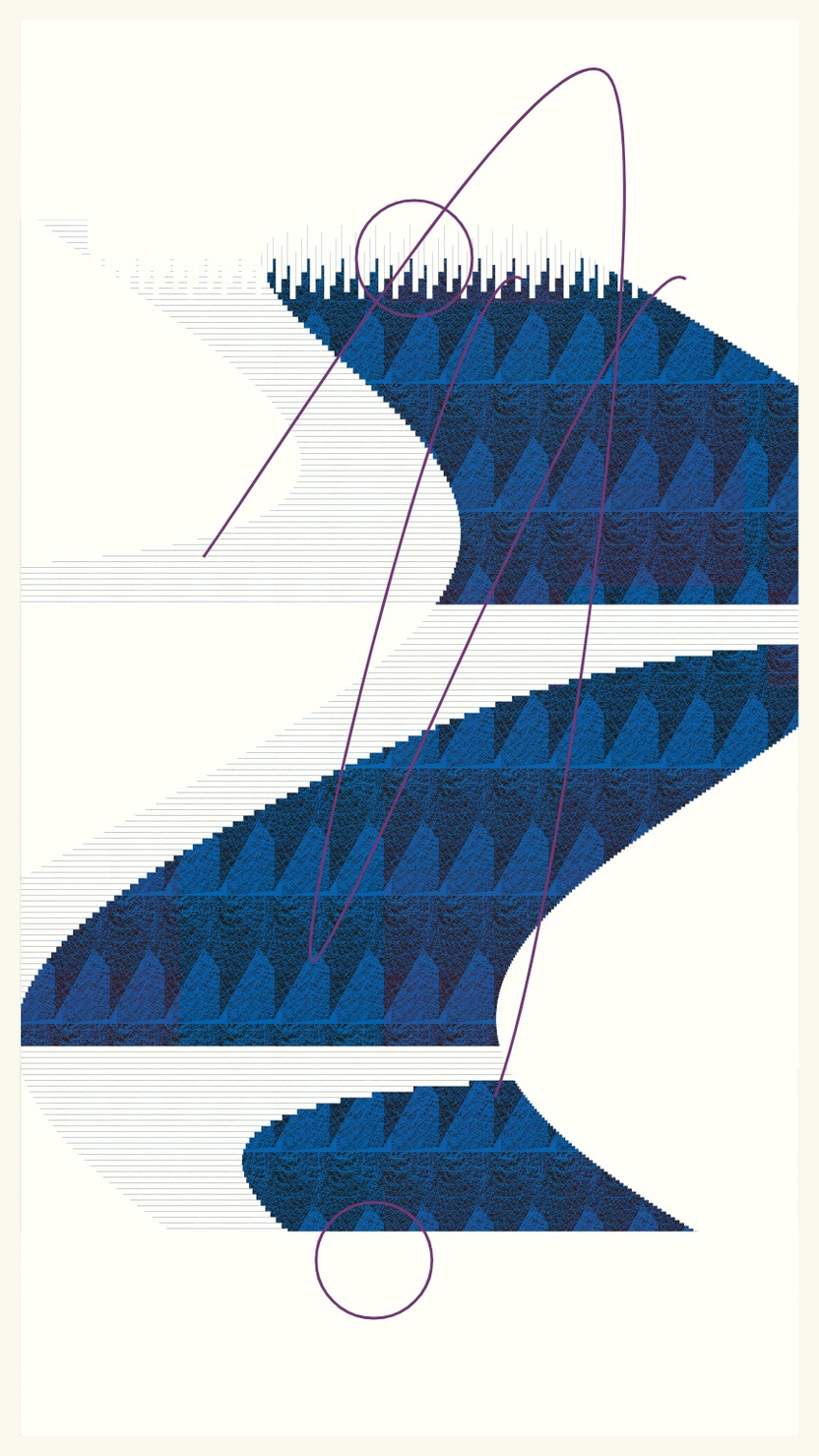
Kinetics by Andrew Mitchell
Kinetics is a neo-constructivist 512 piece generative art project built using p5js. Each Kinetic delicately moves from it’s origin, giving the appearance of infinite space and possibility. The viewer witnesses the construction of the Kinetic floating inside of the negative. Shapes and lines move around the Kinetic in a dazzling display of contrasting color. The collection is viewable at https://www.fxhash.xyz/generative/slug/kinetics.
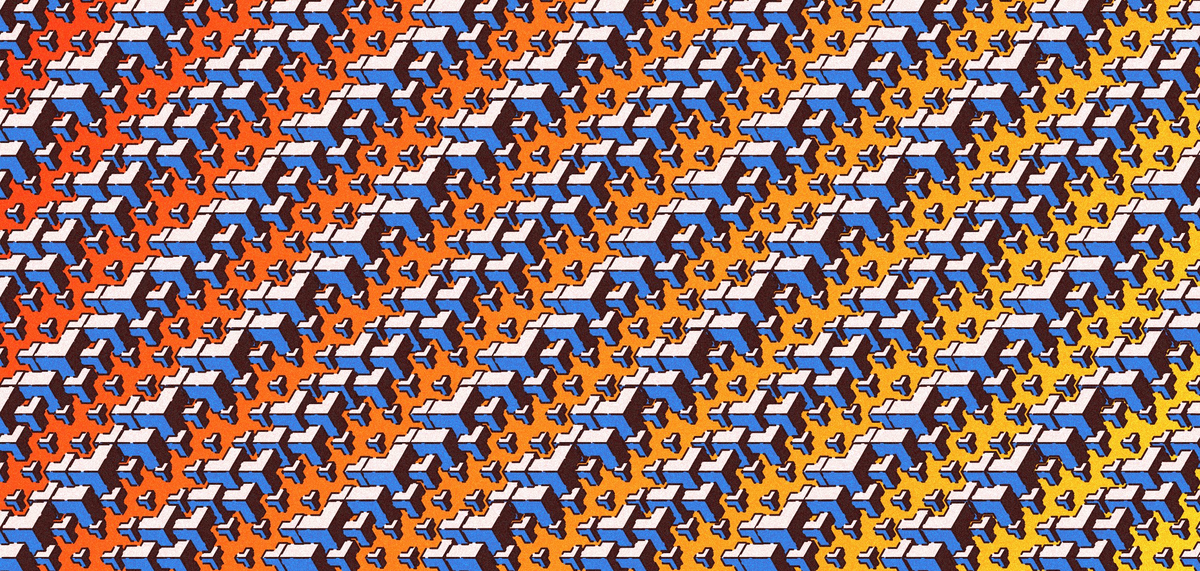
All about that grain
Images in digital art and photography are frequently purposefully perturbed with grainy textures, often intending to evoke a tactile feeling and to add an ounce of ruggedness to an artwork. In this manner, grain is a valuable tool on your generative artist tool belt to elevate your artwork. This article discusses several techniques to achieve grain with p5, texture overlays, SVG filters, and shaders. We’ll discuss each one in great detail and the ups and downsides.
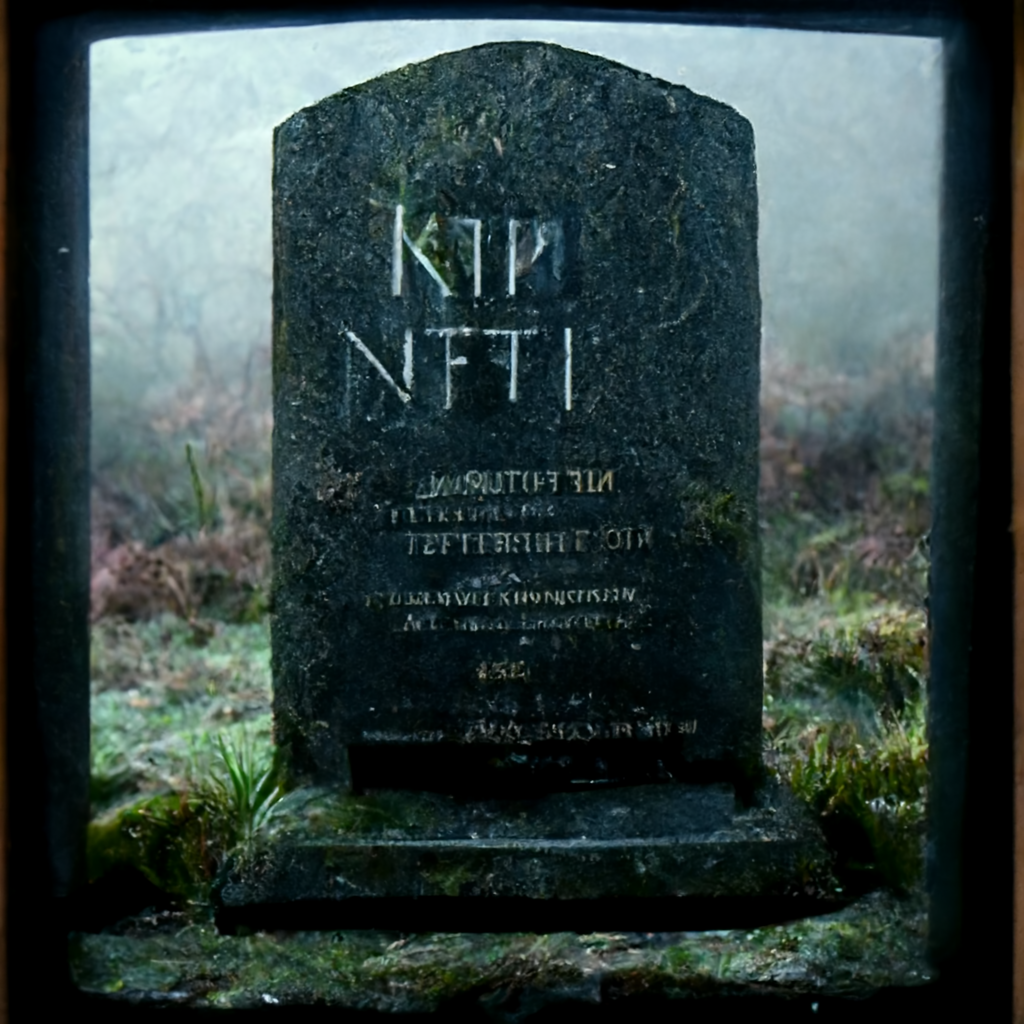
NFTs Are Dead: Panic! We're All Doomed
Recently, Amy Castor on Artnet released an article highly critical of NFTs, "The Boom and the Bust: How NFTs Went the Way of Beanie Babies". Let's break it down, paragraph by paragraph.
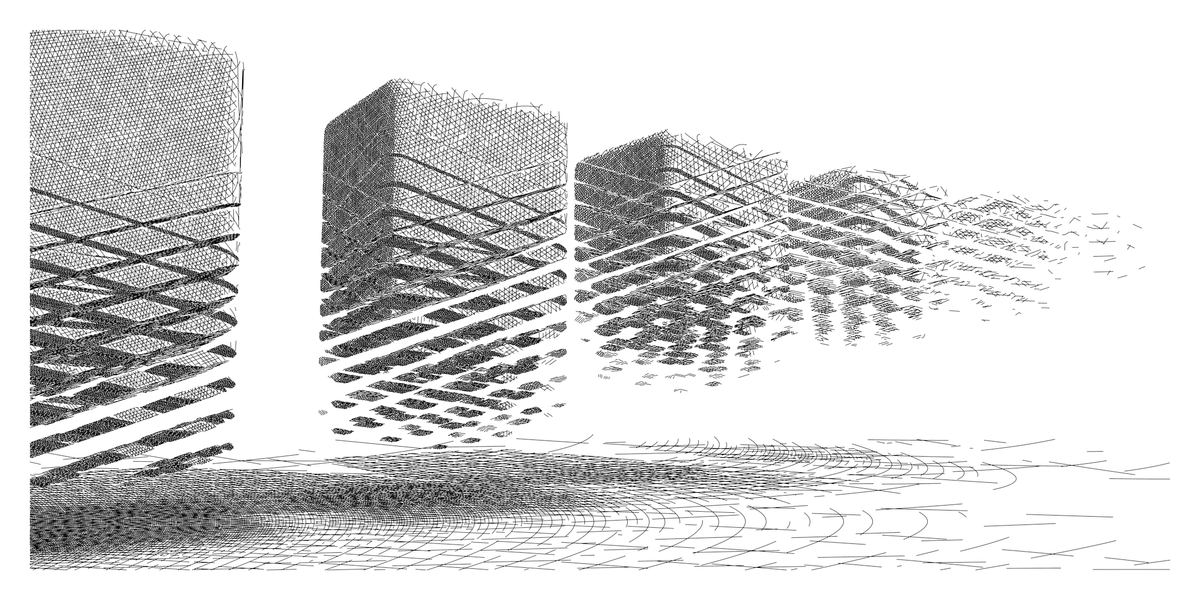
Rayhatching Evolution
I developed an algorithm that performs raytracing/raymarching of SDFs, to produce hatched line art SVG output. This is the story of how I got from not there, to there.